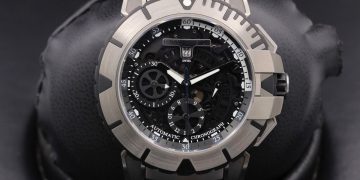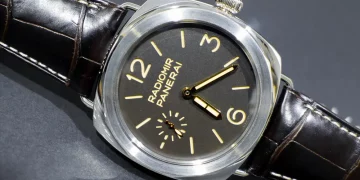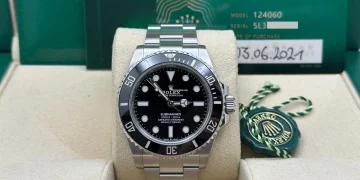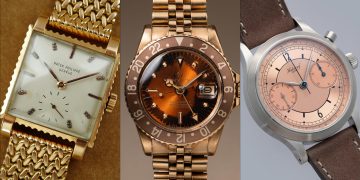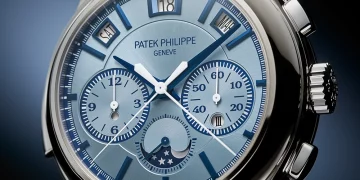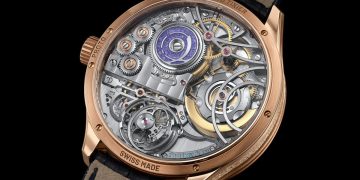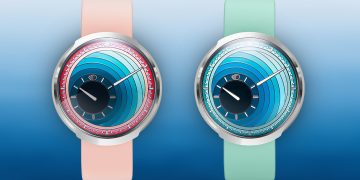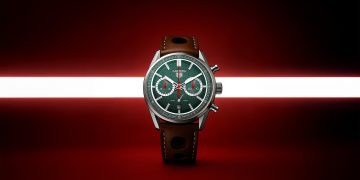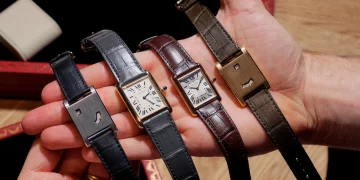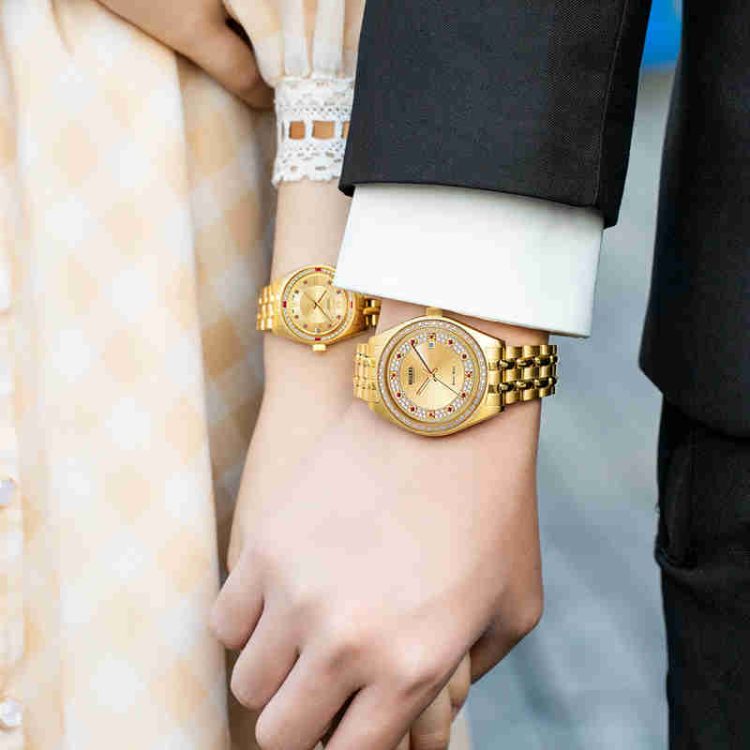Introduction:
In the world of high-end watches, purchasing a timepiece often goes beyond just choosing something that tells the time. For many watch enthusiasts and collectors, the brand history plays a significant role in the decision-making process. High-end watches are often seen as a symbol of prestige, craftsmanship, and exclusivity. But does the brand’s legacy truly influence a buyer’s choice, or are there other factors at play?
In this article, we will explore whether a brand’s history is a decisive factor when purchasing a luxury watch. We will examine the importance of brand heritage, its impact on consumer perception, and how it compares with other considerations like design, craftsmanship, and technology.
1. The Allure of Brand Heritage in High-End Watches
1.1 The Significance of Legacy and Tradition
A significant part of the appeal of luxury watches lies in the history and heritage behind the brand. Watches from brands like Rolex, Patek Philippe, Audemars Piguet, and Vacheron Constantin often come with centuries of tradition, craftsmanship, and innovation. For many buyers, this long history is a powerful draw.
- Trust and Reputation: Established watch brands that have been around for over 100 years have built a reputation for reliability, precision, and quality. A rich history adds a sense of trust and security for buyers, as they feel they are investing in a proven product with a legacy of excellence.
- Heritage as a Mark of Authenticity: The historical significance of a brand often conveys authenticity. For buyers seeking an iconic or exclusive timepiece, a well-known brand with a deep history is seen as more credible. Their watch isn’t just a functional tool, but also a piece of history, which elevates the buyer’s overall experience.
1.2 Emotional Appeal and Storytelling
Luxury watch brands often capitalize on their history to create a compelling narrative around their products. Consumers are not just purchasing a watch; they are buying into a story—a narrative filled with innovation, heritage, and achievement.
- Prestige and Status: Owning a watch from a prestigious brand with a storied past can serve as a symbol of social status. For many buyers, the history of the brand becomes tied to their personal identity. It’s a way of demonstrating success, taste, and belonging to an exclusive group.
- Craftsmanship and Mastery: A watch brand with a long history in fine watchmaking is often synonymous with years of expertise, leading to superior craftsmanship and innovation. Buyers may value the meticulous craftsmanship that has been passed down through generations, which adds to the appeal of the brand.
2. The Influence of Brand History on Luxury Watch Pricing
2.1 Premium Pricing for Historic Brands
A watch’s price is often influenced by its brand history. High-end watches from well-known manufacturers are typically priced higher due to the prestige and legacy associated with the brand. The story of the brand’s founding, its contributions to watchmaking, and its reputation for producing high-quality timepieces can justify a higher price tag.
- Increased Perceived Value: The perception of value for many consumers is linked to the history of the brand. A timepiece from a brand with a storied history is often viewed as more valuable, not just because of the materials and craftsmanship but also because of its association with tradition.
- Limited Editions and Collector’s Items: Many prestigious watch brands release limited edition models or pieces commemorating historical milestones. These pieces often become collectibles, increasing in value over time. As a result, the brand’s historical significance can directly impact its resale value.
2.2 The Impact on Resale and Investment
A luxury watch is not just an item for personal use; for many buyers, it’s also an investment. Watches from brands with rich histories, such as Patek Philippe or Rolex, are often seen as stable investments that retain or appreciate in value.
- Timeless Appeal: Watches with a historical legacy tend to hold their value better over time, especially when they are well-maintained. This makes them an attractive purchase for individuals looking to make an investment, in addition to a luxury statement.
- High Demand in the Secondary Market: The strong historical brand recognition often means these watches are in high demand in the secondary market. Vintage pieces from iconic brands often sell for higher prices due to the historical appeal.
3. Comparing Brand History with Other Decisive Factors
3.1 The Role of Design and Aesthetics
While brand history plays a significant role, it’s not the only consideration when purchasing a luxury watch. Design and aesthetic appeal are often just as important, if not more, for many buyers.
- Personal Preference: Some watch buyers may prioritize a watch’s appearance, functionality, or modern innovations over its brand legacy. A sleek, innovative design or a watch with specific features that cater to the buyer’s personal style can outweigh the brand’s history.
- Changing Trends: As modern trends evolve, younger generations may be more drawn to newer brands that focus on contemporary design, technology, and sustainability. These factors may appeal more to some buyers than the historical prestige of traditional brands.
3.2 Craftsmanship and Innovation
For some, the decision to purchase a luxury watch is driven more by the quality of craftsmanship and the technical innovation behind the watch, rather than the brand’s legacy. Modern high-end watch brands, even those without centuries of history, are known for their exceptional craftsmanship and innovative designs.
- Cutting-edge Technology: Many watch buyers value the mechanical sophistication and technological advancements incorporated into modern watches. For example, watches featuring advanced materials like ceramics, titanium, or smart technology may appeal to those looking for a more cutting-edge product.
- Precision and Performance: High-end watches are often valued for their accuracy and performance. Buyers may focus on the technical features, such as the movement or complications, that offer superior functionality, regardless of the brand’s historical background.
3.3 Customer Service and After-Sales Support
The level of customer service and after-sales support provided by a brand also plays a significant role in the purchasing decision. Brands with a long-standing history often offer superior customer service, ensuring that repairs, servicing, and maintenance are handled with the utmost care.
- Long-Term Relationships: High-end watch brands with a history of customer care often establish a lasting relationship with their clients, ensuring that buyers feel secure and valued throughout the lifespan of their watch. The ability to maintain and repair a watch over many years is an essential aspect of owning a luxury timepiece.

4. The Rise of New Watch Brands and Changing Preferences
While established brands with rich histories continue to dominate the luxury watch market, newer brands with fresh ideas and designs are making a significant impact. These newer brands, often with no historical lineage, focus more on innovation, modern design, and customer experience.
- Appeal to Younger Audiences: Newer watch brands that cater to the younger generation may not have the same historical background as traditional brands, but they often excel in personalization, technology, and affordability. As younger consumers become more interested in sustainability and innovation, the emphasis on brand history may diminish.
5. Conclusion:
In conclusion, brand history does play a significant role in the decision-making process when purchasing a high-end watch, especially for those who value legacy, craftsmanship, and the sense of owning a piece of watchmaking history. A brand’s historical significance can add emotional value, increase the perceived investment potential, and ensure long-term quality and resale value.
However, brand history is not the only decisive factor. For many buyers, the design, innovation, craftsmanship, and functionality of the watch can outweigh the prestige of the brand’s past. As the market evolves, we see a growing trend of consumers valuing modernity, technology, and personal preferences over traditional legacies.
Ultimately, purchasing a luxury watch is a deeply personal decision that balances a variety of factors. Whether or not brand history is the deciding factor will depend on individual tastes, needs, and priorities.



